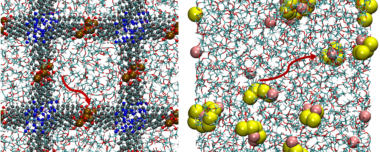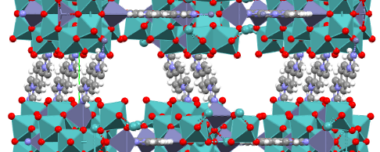Developing new theories for atomistic non-adiabatic dynamics simulations of carrier transport
Charge transport is inherently non-adiabatic. We are interested in developing new methodologies and employing them for studying thermal and photo-induced carrier mobilities in purely organic and inorganic materials. We are specifically interested in providing insights into how external stimuli such as light, temperature, pressure, and the presence of different adsorbate molecules affect these processes at the molecular level.


